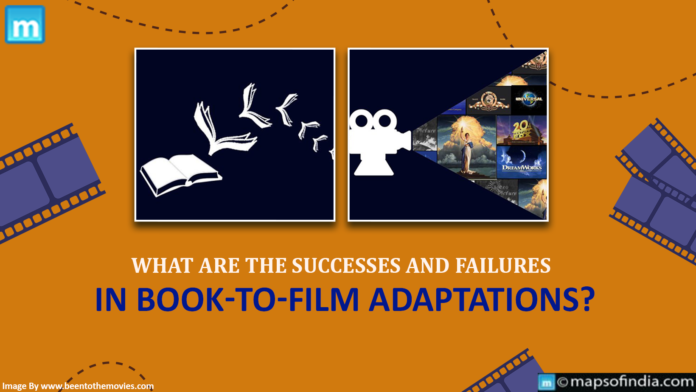Book-to-film adaptations are a common practice in the entertainment industry, and the effect of some transitions is celebrated while others are dealt with with criticism. This imbalance of these adaptations led to both success and failure in the adaptations.
Below are the successful adaptions and failures of book-to-film adaptions:
-
Successful adaptions
Some highly successful book-to-film adaptations include the Harry Potter and The Lord of the Rings film series. The Harry Potter films started with Harry Potter and the Philosopher’s Stone in 2001. They were both critically acclaimed and financially productive while retaining the books’ essence by capturing Hogwarts’s magical world and the characters’ emotional depth. Similarly, The Lord of the Rings trilogy, directed by Peter Jackson and started with The Fellowship of the Ring in 2001, was praised for its faithfulness to J.R.R. Tolkien’s source material through stunning visuals and compelling storytelling, going on to win numerous awards and became a cultural phenomenon. The multifaceted reasons for the successes of these book-to-film adaptations include the authors’ involvement, skilled directors like Peter Jackson who understood the source material, and the dedication of casts and crews to capturing the essence of the books for the screen. Some examples of Successful adaptations are:
1. The Lord of the Rings Trilogy
2. Harry Potter Series
3. The Shawshank Redemption
4. To Kill a Mockingbird
5. The Godfather
6. The Silence of the Lambs
-
Failures in adaptations
Both “The Golden Compass” (2007) and “The Hitchhiker’s Guide to the Galaxy” (2005) were book-to-film adaptations that failed to live up to their beloved source material. “The Golden Compass” was criticized for its rushed pace and alterations to Philip Pullman’s complex story in his “His Dark Materials” trilogy, underperforming at the box office and receiving mixed reviews. Meanwhile, despite its talented cast and visuals, “The Hitchhiker’s Guide to the Galaxy” could not capture the humour and wit of Douglas Adams’ novel, leaving fans disappointed with its lukewarm reception. In both cases, the film adaptations struggled to faithfully translate the intricate details, characters, and tones that made the original works so beloved, resulting from issues with the adaptation process or needing to understand the source material fully.
In conclusion, whether a book-to-film adaptation succeeds or fails hinges on multiple factors, such as the author’s involvement, the director’s ability, and the cast and crew’s commitment. While some adaptations effectively translate the source material in a way that engages audiences, others fall short of expectations. However, transforming literature into cinema is a nuanced art form that consistently attracts worldwide interest, as evidenced by the successes and shortcomings of such translated works. The entertainment industry awaits many more successful book-to-film adaptations as a new way of including books in digital advancements and movies.




